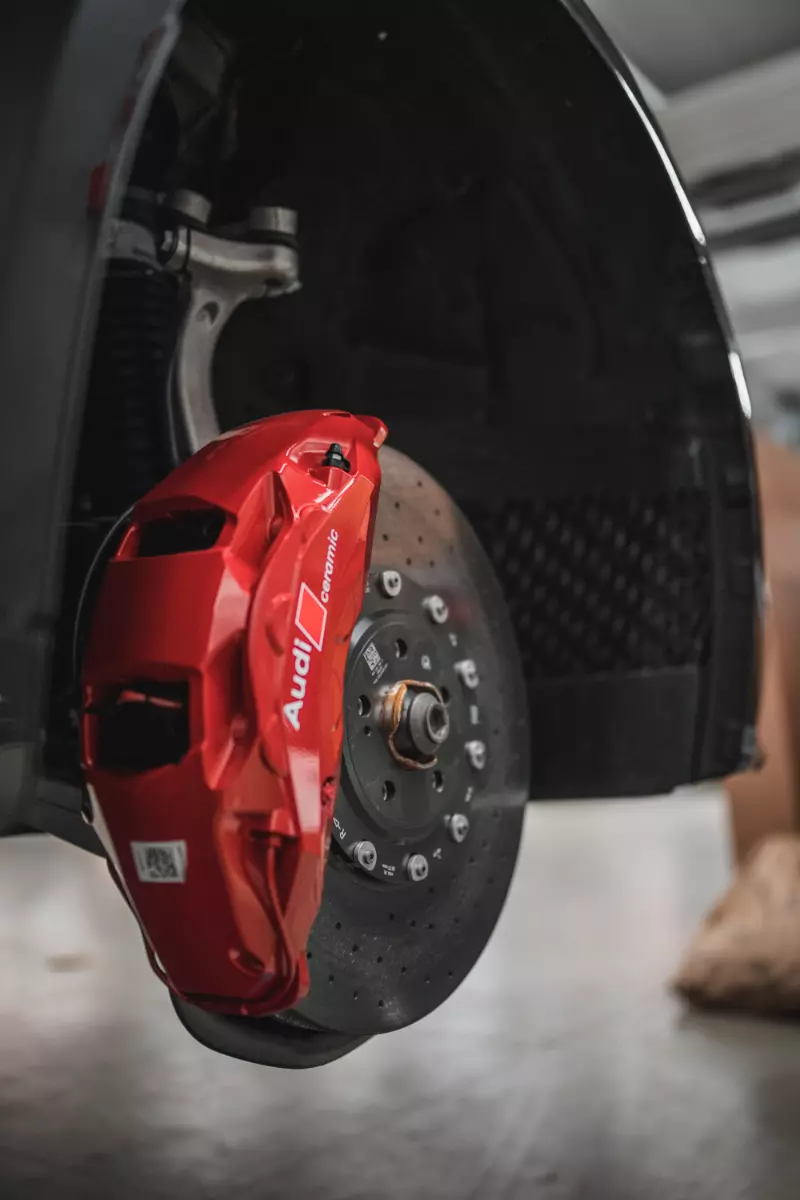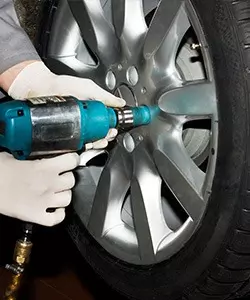What happens if you don't get your brakes serviced? This article looks at when to get your brakes serviced and the warning signs that your brakes need repair.
This is a question that responsible motorists wouldn't even think about asking. Essentially, you don't want to find out what happens when you don't have your brakes inspected or serviced.
If you notice any issue with the brake system on your car, such as taking longer to come to a complete stop at the lights, you should book your car in for a service. And if you know that your brakes are in dire need of repair, don't even try and drive it to the garage, have it collected and the brake problems resolved.
While you might not have a set schedule time in your service manual for when your brakes need to be checked and car repairs carried out, the moment you notice an issue, you need to take your car for a service or repair to avoid a complete brake failure.
However, as a general rule, you'll find that most car brakes will last up to 50,000 miles before they need essential repairs or replacement. Of course, this will vary widely, given the different driving styles everyone has. For example, if you're particularly aggressive in your driving style, you'll find that your brake pads, rotors and callipers will require more frequent replacement.
Warning Signs That Your Brakes Need Repair
While your driving habits and road conditions can influence how many miles your brake components can withstand, there are common warning signs to look out for that tell you when they need to be repaired. If you notice any of the following, make sure you take your car into a garage for essential brake repairs:
If your brake pads have begun to wear down, just as they begin to scrape against the brake disc itself, onboard sensors will begin emitting a noticeable screeching or squealing sound. However, if you notice horrible grinding sounds when you press the brake pedal, the pads are completely gone, and the two pieces of metal are coming into contact.
If you notice that your brake pedal vibrates or pulsates when you press it, or your car begins vibrating when you brake, you likely have a warped brake disc which needs to be repaired.
An obvious sign that your brakes need repair is if you notice any brake fluid leaking out of them. You'll also notice a burning smell if this gets onto your motor.
You might wonder what "too long" means to stop with your brakes. However, if you have to depress the pedal all the way to the floor for them to have an effect, that's definitely too long. This will gradually change your driving, but it can become extremely dangerous if you don't notice it soon enough and have your brake pads changed.
If you find that your car pulls to one side, your steering wheel tugs in either direction when braking or the entire car vibrates, then the front brake pads on your front tyres are excessively worn and too thin.
In most modern cars, once your brake pads wear down to a certain measurement, an electronic sensor will illuminate a warning light on your instrument panel.
What can happen when you drive when your brake pads are worn?
Once your brakes reach a certain level of outer pad wear, they'll be very hard for you and everyone else to ignore. Besides attracting attention as you screech to a stop at the traffic lights, there are some more serious consequences if you choose to drive with worn-out brakes.
Here is a selection of things that could happen if you take your car out with brakes that are in desperate need of repair:
Damage to the brake rotors and callipers
Given that modern car brakes are a complicated system of interconnected moving parts, once your brake pads or other elements of your brakes begin to wear, they'll likely damage other components as well.
For example, once your brake pads wear down to a certain point, they'll also begin damaging your brake rotors.
This is because your brake pads usually squeeze the rotor to bring your car to a stop.
Therefore, once the pads wear down, the exposed metal of your brake discs will grind against your rotors whenever you press the brake pedal.
Not only is this incredibly noisy, but you risk damaging them beyond repair.

Worn pads grinding against your rotors also generates a lot of heat under braking, meaning your rotors are not only being ground down, but you run the risk of them warping and cracking as well. On average, your brake rotors and brake shoes will outlast your brake pads, but if you don't regularly replace your brake pads with new brake pads, these other elements of your braking system will become damaged.
Vibration when braking
When your brakes are in working order, they should slow your car down smoothly. But, if the pads or rotors are worn and damaged, you'll notice your car shaking as you press the brake pedal, or your steering wheel will vibrate.
Any of these are warning signs that you should have your brakes serviced and repaired.
Wear down your tyres
Besides worn brake pads, rotors or callipers damaging each other, they can also cause damage to your tyres. As your braking becomes less effective, you'll find yourself having to slam onto the brake pedal more often to slow yourself down.
This can lead to increased wear on your wheels. Rapid or uneven tyre wear can make them unbalanced, so taking care of your brakes also means taking care of your tyres.
Slow response time
Depending on how your brake pads wear out, the more damage they suffer, the more difficult it is for them to slow your car and bring it to a stop.
Paying attention to the response of your brakes is crucial to keeping them in good condition. Of course, if your brakes become glazed through wear, you'll notice you need to push your brake pedal much further to have an effect.
Other symptoms of glazed brake pads include those we've previously mentioned, such as longer stopping distances, feeling your car pulling to one side, your parking brake not working properly or brake slipping.
The latter two symptoms can also occur if your brake pads squeeze the rotors improperly from both sides, uneven brake pad wear or they are engaging and disengaging as you brake.

How often do brakes need to be serviced?
Having your brakes serviced is slightly different from having your brake pads replaced. Naturally, your brakes need repairing or replacing whenever they become worn, but how often should you have a brake service? Most car manufacturers indicate when services are required in their maintenance schedules. But as a general rule, you should have your brakes serviced every 5,000 to 7,000 miles, or 4 to 6 months, whichever comes first.
Again, having your brakes serviced is not the same as having them repaired. Services involve visual inspections of your brake components, as well as cleaning and lubricating them when required. Like any other car service, this ensures your brakes continue to work as they should, keeping your vehicle safe to drive.
Just as there are signs that your brakes need repairing, there are signs that they require servicing too. These include things like noticing your brakes seizing up or sticking. Noises are also a clear sign, and instead of wear, they could indicate there is rust or a build-up of dirt on your brake components.
If you require annual servicing, choose a garage that you can trust. Follow the link below to contact a car service mechanic in Watford.


